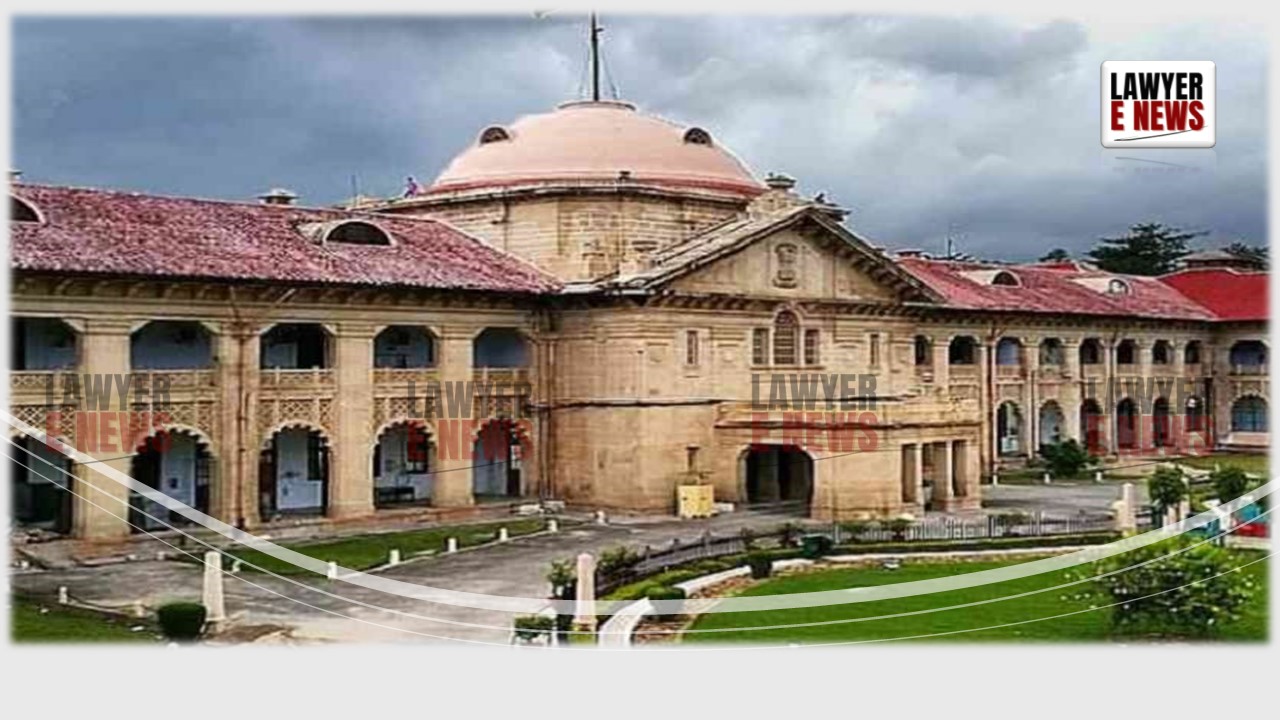-
by Admin
15 February 2026 5:35 AM



High Court overturns Single Judge’s ruling mandates prior DIOS approval for non-teaching appointments in minority institutions.
In a landmark decision, the Allahabad High Court has ruled that Regulation 101 under Chapter III of the U.P. Intermediate Education Act, 1921, which requires prior approval from the District Inspector of Schools (DIOS) for filling non-teaching posts, applies to all aided institutions, including minority institutions. The Division Bench, comprising Justices Mahesh Chandra Tripathi and Anish Kumar Gupta, reversed the earlier decision of a Single Judge, thereby affirming the necessity of regulatory oversight for ensuring lawful appointments in minority educational institutions.
The case arose when the State of Uttar Pradesh and three others challenged the decision of a Single Judge, who had quashed the orders of the DIOS disapproving the appointment of Manoj Kumar Jain as an Assistant Clerk in Shri Udai Singh Jain Kanya Inter College, a minority institution. The Single Judge had held that Regulation 101 was inapplicable to minority institutions, upheld Jain’s appointment, and directed the DIOS to grant financial sanction and arrears of salary. The State argued that Regulation 101 applies to all aided institutions, regardless of their minority status, and that the appointment process followed by the institution was flawed and lacked transparency.
Applicability of Regulation 101: The High Court held that Regulation 101 mandates prior DIOS approval for filling non-teaching posts in all aided institutions, including minority institutions. The court stated, "The term 'any recognized, aided institution' encompasses both minority and non-minority institutions, ensuring a uniform regulatory framework."
Referring to the Supreme Court's ruling in State of U.P. & Ors. v. Principal Abhay Nandan Inter College & Ors., the bench noted that there is no distinction between minority and non-minority institutions concerning the applicability of Regulation 101. The judgment emphasized, "When it comes to aided institutions, there cannot be any difference between a minority and non-minority one."
Validity of Appointments: The court scrutinized the appointment process of Manoj Kumar Jain and found significant procedural irregularities. The advertisement for the post lacked essential details, and the appointment letter was found deficient. "The appointment process was flawed and lacked transparency, rendering the appointment invalid," the court observed.
Regulatory Oversight: The bench stressed the necessity of regulatory oversight for ensuring lawful appointments and proper utilization of state aid. "Merely obtaining prior approval from DIOS for making an appointment does not infringe the minority status of the institution. It ensures that appointments are made transparently and in accordance with the law," the judgment stated.
Importance of Adhering to Prescribed Procedures: The court underscored the importance of following prescribed procedures to maintain the integrity of recruitment processes in aided institutions. The ruling stated, "The failure to obtain prior DIOS approval vitiates the selection process from its inception."
Justice Mahesh Chandra Tripathi remarked, "The minority institution is free to advertise the post and make selections, but the regulatory measure of obtaining prior DIOS approval is essential to ensure the lawful use of state funds."
The Allahabad High Court's judgment reinforces the applicability of Regulation 101 to all aided institutions, including minority institutions. This decision underscores the importance of regulatory oversight in appointments to ensure transparency and adherence to legal standards. By overturning the Single Judge's judgment, the court has reaffirmed the mandatory nature of obtaining prior DIOS approval for filling non-teaching posts in aided institutions. This ruling is expected to have significant implications for future recruitment processes in minority institutions, ensuring they adhere to the same regulatory standards as non-minority institutions.
Date of Decision: 31 May 2024
